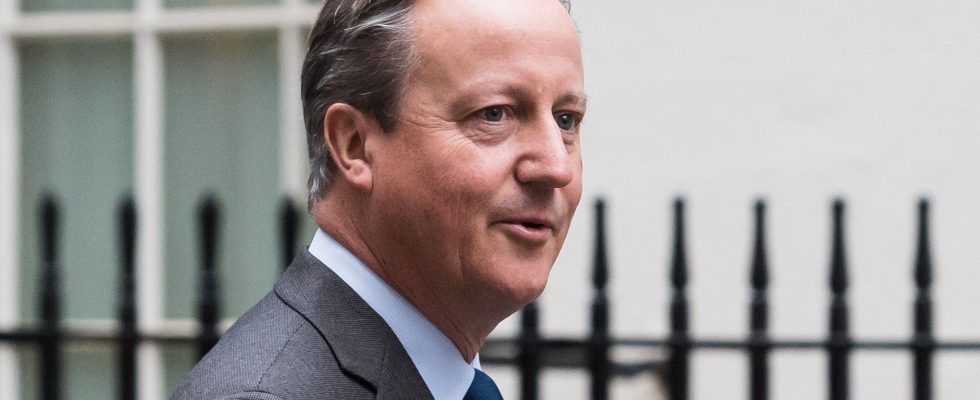If Rishi Sunak wanted to make the dismissal of his very controversial Interior Minister Suella Braverman go unnoticed, we can say that he succeeded. By announcing an in-depth reshuffle of his government and, above all, the return of former Prime Minister David Cameron to the post of Foreign Minister, seven years after his withdrawal from British political life following the disastrous Brexit referendum , Sunak created a surprise. A big surprise.
Suddenly, no one was talking about the departure of Suella Braverman after her incendiary remarks against migrants, the homeless and even the police, but about the return to business of David Cameron, or rather of Lord Cameron, because Sunak had to appoint him Lord so that he can join the government. Cameron, who has not been an MP since 2016 and therefore no longer sits in Parliament, had to meet this requirement to occupy a leading position.
Back to the future
Even more remarkable, Rishi Sunak now has a significant number of former Cameron loyalists around him, such as Laura Trott, now Secretary of State for the Economy, and Oliver Dowden, number two in the government. Sunak also promoted a few centrists like Victoria Atkins, now health minister. Cameron faithful, centrists, pro-Europeans: suffice to say that the hard wing of the Tories very badly received this reshuffle which has the air of “pre-Brexit”, as the conservative daily called it The Times. “Back to the future” is the other expression most used by British political analysts since Monday, November 13.
Sunak goes all out. Or, according to analyst Beth Rigby, using the slogan of the Brexiteers, Sunak is trying to “take back control”. Less than a year before a general election which should install a Labor government in power and Keir Starmer in Downing Street, Sunak is therefore attempting the unthinkable: restoring the image of the Conservative Party as a responsible, reasonable and competent party. The presence of David Cameron in Foreign Affairs in a very tense international context will allow Sunak to delegate international trips and conferences to him and to concentrate on the country’s burning issues such as the bankruptcy of the British health system, the post-Brexit economy, inflation, immigration and weakened ties with Scotland and Northern Ireland. For William Hague, former leader of the Conservative Party and former Foreign Minister under David Cameron, this reshuffle marks the return of decency and respect in politics, and a “rational and methodical” style of government, the opposite of the management of the Covid crisis by Boris Johnson and “secretive, incompetent, vulgar, misogynistic and arrogant” advisors.
However, after thirteen years in power and a referendum that deeply divided the country, the Conservatives who have worn out five Prime Ministers and seven Foreign Ministers face an immense challenge: finding a compass and regaining the confidence of the country. An impossible mission, but a fight that Sunak now says he is ready to fight to the end.
